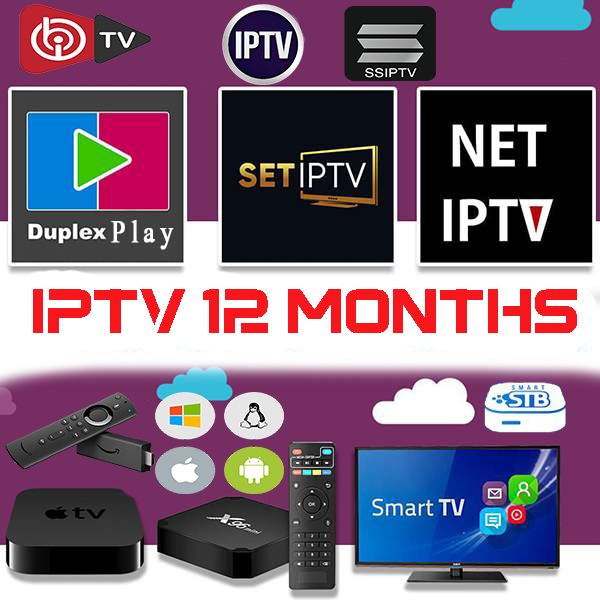Within the current digital age, the way we consume television has transformed significantly. Departed are the days when we relied exclusively on classic cable and satellite services. Currently, an innovative technology known as IPTV is changing the landscape of media consumption. IPTV stands for Internet Protocol Television, and it delivers television programming and additional video content over the internet rather than via conventional means.
Grasping how IPTV works is essential to valuing its advantages. Unlike traditional broadcasting methods that transmit signals via satellite or cable, IPTV utilizes your internet connection to stream content directly to your devices. This means you can view your favorite shows on a wide variety of devices, such as smart TVs, computers, tablets, and smartphones, giving you unprecedented flexibility and control over your viewing experience. With IPTV, you can access live television, on-demand movies, and even past episodes of favored series, all at your fingertips.
What does IPTV?
Internet Protocol Television, represents a technology that provides television content through the web instead of using conventional cable or satellite services. This system allows users to stream shows, movies, and live broadcasts directly to their televisions, leveraging a broadband connection. By using the internet to transmit data, IPTV offers enhanced flexibility and ease of access for audience, making it easier to watch content at any time and in any location.
One of the primary aspects of IPTV is its ability to offer on-demand content. Subscribers can choose from a library of shows and movies to watch at their own pace, as opposed to traditional television which frequently utilizes fixed timing. This functionality is made possible through the employment of set-top boxes or intelligent devices that can interpret and show the broadcasts. Additionally, many IPTV providers offer features like replay TV and on-demand video, elevating the consumer experience.
IPTV also handles various streaming types and can deliver high-definition content. With advanced technology, IPTV can adapt to different internet connections, ensuring a smooth and uninterrupted viewing experience. This adaptability, along with the option for interactive features, makes IPTV an appealing choice for those seeking a more personalized and engaging way to watch their favorite content.
How IPTV Works

IPTV works by transmitting television shows over the internet rather than through traditional cable or satellite systems. This technology uses a unique approach to stream content, enabling viewers to stream shows and movies straight to their devices. Users need to connect to the internet, whether through a wired or wireless connection, to get the IPTV service. This connection enables the viewing of digital content on multiple devices including smart TVs, computers, tablets, and smartphones.
At the center of IPTV is the use of Internet Protocol (IP) to send video data. In contrast to previous broadcasting techniques, IPTV delivers content in packets of data, which can be caught and decoded in real time by the user's device. This allows that viewers can watch on-demand content without the waits typically linked to conventional broadcasting. Additionally, IPTV can handle multiple formats, including live streaming, video on demand, and time-shifted programming, offering users options in how they view their beloved shows.
To ensure a seamless viewing experience, IPTV relies on a robust infrastructure that consists of servers, bandwidth management, and content distribution networks. These factors work together to lessen buffering and enhance streaming quality. IPTV services often offer functionalities such as catch-up TV, enabling users to watch previous broadcasts, and interactive options that enrich the viewing experience. With these features, IPTV is revolutionizing how we consume television content.
Benefits of IPTV
One of the main benefits of Internet Protocol Television is the versatility it provides to audiences. In contrast to traditional cable or satellite options, Internet Protocol Television enables users to watch content on multiple devices such as smart TVs, pad devices, mobile phones, and computers. This means you can experience your favorite shows at any time and anywhere, as long as you have a reliable internet access. The convenience of viewing on various devices makes IPTV an attractive option for a modern viewership that values mobility and availability.
Another major advantage of Internet Protocol Television is the extensive content variety. Subscribers can access a large library of channels and demand-driven content, which often includes both real-time television and pre-recorded programs. This wide selection caters to varied tastes and interests, ensuring that everyone in the household can find something pleasurable. Moreover, many IPTV services provide the option to tailor channel bundles, allowing users to pay for only what they desire to view, which can lead to cost efficiencies relative to traditional cable packages.
Additionally, IPTV services often come loaded with advanced functionalities that enhance the viewing experience. www.iptv-pro.co offer features such as stopping, rewinding, and fast forwarding for live television, along with the capability to record shows for later viewing. Some services even include integrated searching features and personalized suggestions based on viewing habits. These enhancements not only make watching television more pleasurable but also allow for greater flexibility over how and when to consume content.
